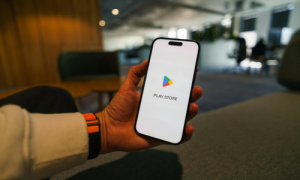In the continuously evolving modern world, businesses need to master marketing strategies that effectively reach their target audiences. Whether you’re in B2B (business-to-business) or B2C (business-to-consumer), digital marketing plays a crucial role in building your brand and driving sales. However, the approach and tactics for B2B and B2C marketing can vary significantly. This blog explores these differences and provides insights into the best practices for each.
As the name suggests, B2C stands for Business to Customer; therefore, B2C Digital Marketing refers to the promotion of a business’s goods and services to the end-users.
B2C digital marketing majorly entails marketing techniques that are aimed at targeting the end-user. It is to build awareness, interest, desire, and action among its prospects and turn them into customers. Here are some key components of B2C digital marketing:
As the name suggests, B2C stands for Business to Customer; therefore, B2C Digital Marketing refers to the promotion of a business’s goods and services to the end-users.

B2C digital marketing majorly entails marketing techniques that are aimed at targeting the end-user. It is to build awareness, interest, desire, and action among its prospects and turn them into customers. Here are some key components of B2C digital marketing:
1. Engaging Content Creation: A key concept of B2C marketing is typically building beautiful designs to capture the consumer’s attention. This covers articles, messages on the social networks, videos, and informative graphic images.
2. Social Media Marketing: It is crucial to remember that B2C marketing cannot survive without the use of platforms such as Instagram, Facebook and TikTok. Consumers open these channels to engage with the businesses and get updates about products’ promotions and existence in the market.
3. E-commerce Optimization: Especially for organisations, which sell directly to consumers, it is essential to have an efficient e-commerce channel. This means that a customer shall have interesting path of strolling through the online store, quick and simple payment methods.
4. Influencer Marketing: An effective working with influencers will allow B2C brands to expand their audience and gain more trust. Most of the influencers have specific audiences and they are well known to spark the interest of the consumers.
5. Paid Advertising: Common in B2C marketing strategies are the paid advertisement in social media and search engines since their target is to reach many people and get direct traffic and sales.
6. Customer Reviews and Testimonials: Testimonials and recommendations are critical in B2C marketing since they help create trust among customer and make them to buy the product.
What is B2B Digital Marketing all about?
While B2C marketing is aimed towards the general population, B2B digital marketing is made for and to other companies. Such strategies are basically aimed at creating contacts, leads and business relationships. Key aspects of B2B digital marketing include:
1. Targeted Content Creation: Laws and quotas are more common in B2B marketing where a typical marketing strategy includes the production of detailed goods like white papers, case studies Webinars that solve common business problems.
2. Lead Generation and Nurturing: B2B marketers seek to identify quality leads and foster lasting business relationships with the contacts through more elaborate follow-up through e-mail marketing, relevant content, and other form of engagement.
3. Account-Based Marketing (ABM): ABM is a top-down marketing strategy where the organisation directs marketing resources on strategic accounts. This is a strategy of presenting messages and content that will meet the needs of discrete entrepreneurs.
4. Professional Networking: Marketing of products through the internet requires the engagement of social media platforms such as LinkedIn especially for B2B companies. They facilitate the opportunity to engage in a particular line of commerce, share ideas and introduce themselves to the industry.
5. Webinars and Virtual Events: B2B businesses can use the webinars and other virtual events to not only share their vision and strategy, but also to teach the potential customers and to communicate with them.
6. SEO and SEM: For B2B companies SEM and SEO are essential to increase the company’s exposure and to attract the business converters using the industry-specific keywords.
Key Differences Between B2C and B2B Digital Marketing
1. Target Audience: B2C marketing targets individual consumers, focusing on emotions and immediate needs. B2B marketing targets other businesses, focusing on logic, efficiency, and long-term relationships.
2. Content Style: B2C content is often designed to be engaging, entertaining, and easy to consume. B2B content is more in-depth and informative, aiming to demonstrate expertise and provide value.
3. Sales Cycle: The B2C sales cycle is generally shorter, with quick purchasing decisions. In contrast, the B2B sales cycle is longer, involving multiple decision-makers and a more complex process.
4. Marketing Channels: B2C marketing frequently utilizes social media and influencers to reach a broad audience. B2B marketing leverages professional networks, email marketing, and industry-specific platforms.
5. Metrics and Goals: B2C metrics focus on metrics like engagement rates, conversion rates, and brand awareness. B2B metrics include lead quality, account engagement, and ROI from marketing activities.
Understanding the differences between B2C and B2B digital marketing is essential for tailoring your strategies to meet your specific goals. While both approaches share common digital tools and principles, their application differs based on the target audience and marketing objectives.
If you’re looking for expert help to navigate both B2B and B2C digital marketing, Mind Spark Technologies has a top-notch team ready to enhance your online presence and drive business success. Contact us today to take your digital marketing to the next level!








